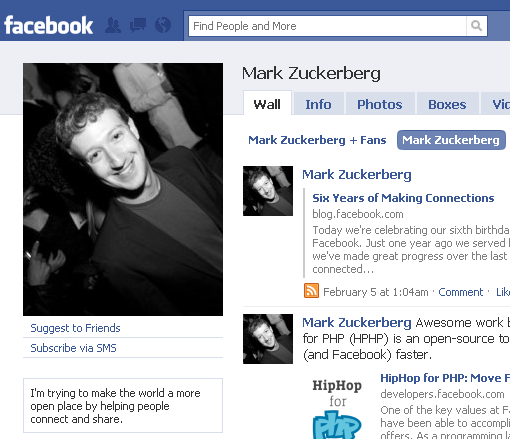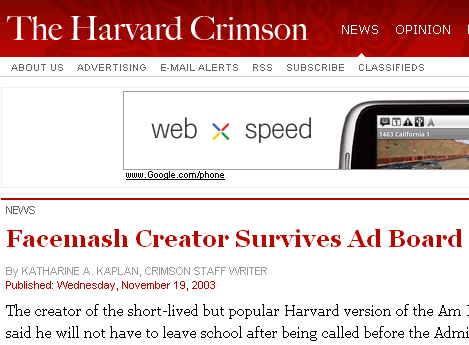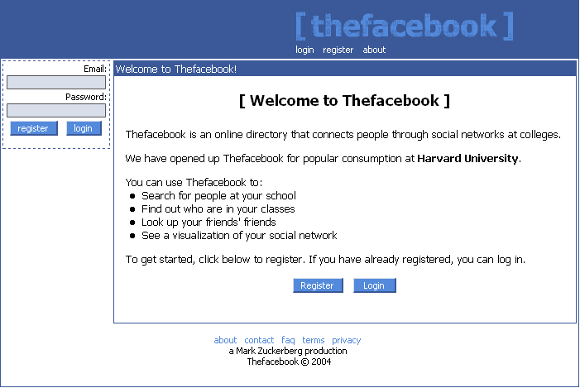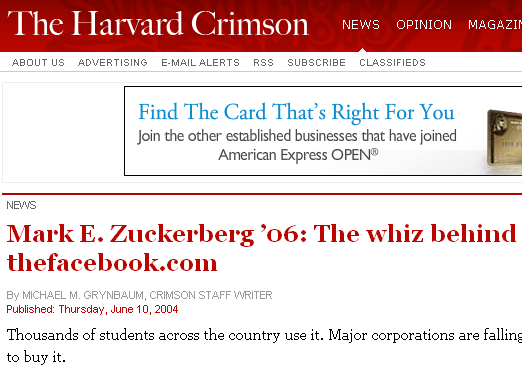A few weeks ago, I wrote an article entitled How Does Facebook Work? The Nuts and Bolts detailing how Facebook operates as part of our Technology Explained series.
In the article, I covered the technologies behind the social giant. Today, I'm going to answer another fundamental question we all have about Facebook - how did Facebook originate?
The story behind Facebook is fascinating. It involves college students, booze, hacking, investigation, and farm animals. Considering how it began, it's pretty amazing how far the site has come in just 6 short years.
Facebook started as an idea and grew into a company that employs more than 1,000 people and is home to more than 400 million [Broken URL Removed] active users. Allow me to give you a bit of a history lesson.
Mark Zuckerberg
Facebook all starts with Mark Zuckerberg. As Facebook's CEO and co-founder, Mark was named one of The World's Most Influential People by Time magazine in 2008 when he was just 24. He founded [Broken URL Removed] Facebook along with a few of his former classmates - Dustin Moskovitz, Eduardo Saverin, and Chris Hughes - while attending Harvard.
The idea for Facebook came from Mark's days at Phillips Exeter Academy, which annually published a student directory with headshot photos of all students and faculty known as the "facebook".
How Did Facebook Originate? From Facemash.
Before there was a Facebook, there was Facemash. Zuckerberg invented Facemash on October 28, 2003 while attending Harvard his sophomore year.
Apparently, Mark got dumped by a girl he was seeing, got drunk, and started blogging to get his mind off of things. He stated that he had his dormitory "˜facebook' up and some of the pictures were so ugly that they could be compared to farm animals. Enter Facemash.
Mark posted: "Yea, it's on. I'm not exactly sure how the farm animals are going to fit into this whole thing (you can't really ever be sure with farm animals"¦), but I like the idea of comparing two people together."
Facemash became Harvard's version of Hot or Not. Using photos gathered from the "˜facebooks' of nine houses, Zuckerberg made a site that would randomly display two photos side-by-side, allowing others to vote on who the "hotter" person was.
How exactly did he get the photos? He hacked into Harvard's computer network and copied them, of course. This whole incident got the attention of Harvard's school newspaper, The Harvard Crimson.
Success Of Facemash & Its Fallout
At the time Facemash went live, Harvard did not have its own student directory or anything similar. Mark's site became instantly popular because of this, garnering 450 visitors and 22,000 photo views within only a few hours.
Mark blogged: "Perhaps Harvard will squelch it for legal reasons without realizing its value as a venture that could possibly be expanded to other schools (maybe even ones with good-looking people...), but one thing is certain, and it's that I'm a jerk for making this site. Oh well. Someone had to do it eventually..."
A few days later, Harvard administration shut down the site and charged Zuckerberg with breach of security and invasion of privacy and copyrights. He faced expulsion but in the end the charges were dropped.
Thefacebook
In January 2004 (the following semester), Mark began coding a new website called Thefacebook. He was inspired by the newspaper article covering the whole Facemash incident, in which the paper stated that there could be many benefits to a centralized website.
Thefacebook launched on February 4th. "Everyone's been talking a lot about a universal facebook within Harvard," Zuckerberg told The Harvard Crimson. "I think it's kind of silly that it would take the University a couple of years to get around to it. I can do it better than they can, and I can do it in a week."
In just 24 hours time, Thefacebook had nearly 1,500 registrants. After a month, more than half the undergrad population at Harvard had accounts.
In March, Zuckerberg (and team) expanded to the other Ivy League schools and soon after the rest of the country and eventually the whole world.
They dropped "˜The' from their name and purchased the facebook.com domain name for $200,000 in 2005. The rest, as they say, is history.
Conclusion
Success stories are often fun to read about. Although still young, Facebook continues to grow rapidly and has been a huge success. It will be interesting to see where it goes in the future.
Did you know Facebook had such an interesting background story? What's the next step in online communication? Leave your comments below.
Image Credit: 123dan321





